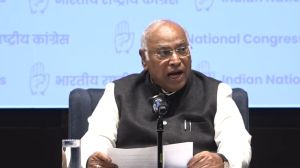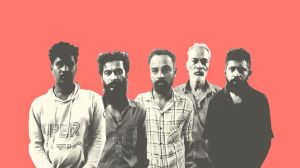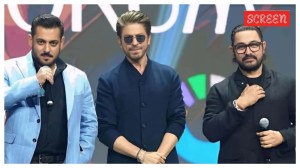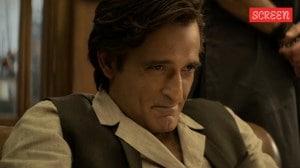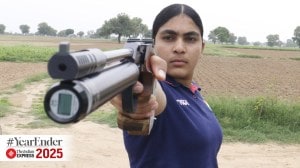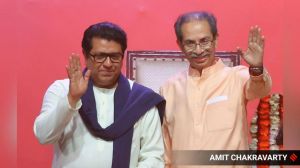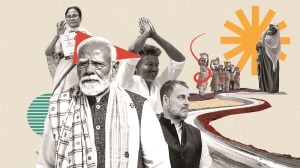Rustic view
Anusha Rizvi's debut Peepli Live has been winning rave reviews at international film festivals,but the director is not resting on her laurels. She wants the film to reach the smallest village of India.
Anusha Rizvis debut directorial venture Peepli Live has been winning rave reviews at international film festivals,the latest being at Melbourne. However,the director is not resting on her laurels. She wants the film to reach the smallest village of India.
Congratulations,you have just won the Best First Feature Film award at Durban Film Festival. What are your thoughts right now?
Im feeling good. I have been travelling to various film festivals like Sundance,Berlin and I was to go for the Melbourne film festival in Australia as well,but I did not get time to sort out my visa. The response everywhere has been quite encouraging. Almost all the screenings have been Housefull. People have been queueing up to watch the film and it feels nice,especially since it hasnt even released yet. Besides,the kind of publicity that happens for a film in the West is not something we can match up to here in India.
What are your expectations from the Indian audience?
The film is primarily for Indians. Having done the rounds of the festivals,it has become a good reference-point for me as a filmmaker,which is encouraging. But I want the film to reach the smallest village of India. It may not happen when it releases this week or even in the next two years,but five years down the line thats what I want out of this film.
So what was the take-off point for the film? Did you,in the course of your career in a TV channel,cover any story related to farmers suicides?
No. I had already quit NDTV and was watching this news about farmers who had committed suicide and their families were getting compensated by the government. Though it was a good step,I thought to myself: What about farmers who are alive? What kind of help are they getting? If they are given financial aid when they are alive,they wont reach this stage. More than two lakh farmers have already committed suicide. Thats a huge number and we are indifferent about it. People living in the cities are hardly affected by the numbers staring in their faces. And that became the starting-point for my film.
Was it always meant to be a light-hearted film or did it turn out that way?
This is a question that has been asked often,but let me tell you that there has been no attempt to make it light-hearted or comic. The language that is inherent in rural India is so rich,full of mohavare proverbs and songs,that the story comes from within. Contrary to what people believe,Indians have a great sense of humour. People in villages use humour through cultural nuances and make fun of themselves constantly. We are self-deprecating,which is the tone of the film.
Why did you want Aamir Khan to produce the film?
Lagaan had just released and I had seen one of his interviews in which he spoke about making different kinds of films. He came across as a person who would understand the script and take it to the level that it deserved.
How long did you have to persuade him?
The persuasion part didnt take long. I wrote about the idea to him in 2004. In 2005,the script was ready and by the end of the year,he had confirmed the film. However,he got busy with Taare Zameen Par and work on Peepli Live began only in 2008. We started shooting in January 2009.
How did you go about the casting of the film?
We tried the traditional route by hiring a casting director. But I realised that with the kind of casting we were looking for,he wouldnt be able to get it right. So,we kind of forced my husband and co-director Mahmood Farooqui,into becoming casting director Smiles. He was the one who chose all the four actors to play Natha,Budya,Dhaniya and Amma,the main characters of the film. Not only them,the supporting actors and everyone else,including those who have done just a walk-on part,have been auditioned.
Was Aamir considered for a role?
He wanted to play Natha. But then Aamir himself,Mahmood and I were not sure how it would turn out. Before we could do a screen-test with Aamir,I saw an audition tape of Omkar Das Manikpuri which he had done for another role. I was convinced he would be the ideal Natha.
The songs of Peepli Live have caught on. Tell us how you put it together.
There are six songs in the film and two songs are remixes. Initially,we thought of having the usual folk music from Uttar Pradesh or Rajasthan but later decided to move away from tradition. I really admired Indian Ocean and had heard their song Des mera in 2004. I thought of it while the film was being made and bought the rights for it. We have changed the lyrics though. Nageen Tanvir,who has sung Chola maati ke rang has a wonderful unique voice and she is trained in folk music as well as classical,which is rare nowadays.
As for Mehangai daayan,Mahmood had heard the Bhadwai Village Mandali group singing this song. We decided to shoot the song but since we had not scheduled it earlier we had to do it overnight. Raghubir Yadav learnt the song in two hours. When we shot it,the villagers got out their pateli,chamach,thali and to the accompaniment of dholak we shot this number. Everybody had to do double-shifts but nobody complained.
The background score by Mathias Duplessy is really nice. Whats more,he plays all the instruments,Indian and Western,himself and even sings.
How did you zero in on the Bundeli dialect as the language of the film?
We had set the film in UP and the language initially reflected that part of the country. But when we were scouting for locations,we did not find any village where we could shoot in sync sound as the density of population was high. Then we shifted to Madhya Pradesh and by word-of-mouth found this village,Badhwai. For creative reasons then,the language had to change. Again all the four main actors in the film come from different parts of India and their Hindi is heavily accented,which seemed odd. Therefore,Mahmood started conducting a series of interviews with the villagers across caste,class and religion. We selected the dialect and conducted a workshop with the actors and only then started shooting.
Tell us about your experience as a director.
Initially,it was extremely scary. I had never been on a set before and wasnt familiar with the atmosphere. But then there was also the other part,that since you are new,you dont have any rules and regulations. So you start forming your own rules that are of your comfort level. Not knowing anything is definitely a big handicap but the entire team of 150 people was very decent. They stood by me,helped and supported me. I made some new and really good friends. The whole experience has been enriching.
How much creative freedom did Aamir give you?
He came on the sets only twice,once when he wanted to meet the villagers and once after the casting was finalised. He has been very supportive,and non-interfering. At one point,I required more OB outdoor broadcast vans for a sequence to show the media frenzy. Though I had some vans,there were many empty spaces in the village that had to be covered. Aamir was very generous and made the vans available for the shoot overnight.
Any incidents that stayed with you during the shoot?
Its the first film for a lot of us. Some sort of energy developed between the unit that has carried on till date. There are many incidents,every day something or the other was happening. We had a lot of parties in small rooms,it was great deal of fun. I remember it was my wedding anniversary on February 9 and we hadnt told anybody. We were doing this difficult shot of bullock-carts riding on small roads. It was really tough for the carts to navigate but finally we managed to okay it. When we heaved a sigh of relief,the cameraman Shankar Raman said it wasnt okay. He said he hadnt run the camera and I was really angry. Anyway,we started re-shooting and the minute I said Action!,instead of bullock-carts I saw hordes of villagers and my unit people running with huge banners of Happy Anniversary. That was really sweet.
There were reports of differences between Aamir and you. Is that true?
Differences are bound to be there as both of us are strong-headed people. But it does not mean it has to be in the public realm. There are certain things you agree to disagree on which is healthy for a creative process.
If the film was not produced by Aamir,did you have a back-up plan?
I did not have a full-fledged back-up plan. However,at no point did I feel that the film will not be made. We,as a unit,wanted to make the movie. The story had to be told. If Aamir Khan Productions had not made the film,we would have made it on the video.
What next after Peepli Live?
Firstly,you guys have yet to see the movie. A lot of people are advising me that before your film comes out,you should be working on another film. But thats not how I work. I have spent a lot of time and worked hard on the film. I want to take some time off. There are a couple of things I am interested in but right now I am thinking only of Peepli Live.
Which directors and actors have you looked up to?
Im from that generation that had seen the Sunday movies that used to be aired on Doordarshan. My parents made me watch all the Bengali films made by maestros like Satyajit Ray,Ritwik Ghatak etc. When I was young,they took me to watch Aamir Khans Raakh,which I found to be quite explicit. Im a complete film buff and the biggest fan of Govinda and Sridevi.
Now that Aamir has produced your film,how about directing him?
That you will have to ask Aamir. Hes done with producing,he would want to be over and done with us as soon as possible laughs I am just joking. We have constantly been in touch for five years,I think he would also want to take a break. And considering that he takes three years to do one film,I dont know when that will happen.
- 01
- 02
- 03
- 04
- 05








